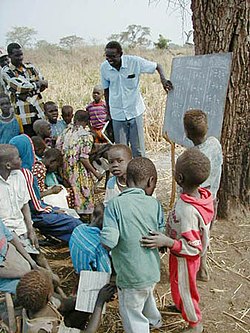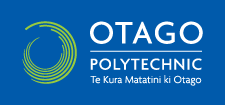Introduction
| “ | It is noble to teach oneself, but still nobler to teach others -- and less trouble. | ” |
| —Mark Twain, 1906 | ||
- In 2008 approximately 66% of the children in Sub-Sarahan Africa did not have the privilege of attending secondary school.[1]
- The Student Public Interest Research Groups (PIRGs) report that American students spend an average of US$900 per annum on the purchase of textbooks.[2] This is more than the average 2009 gross national income per capita (US$512) of the world's low income countries. [3]
The challenge associated with the global demand for tertiary education is not a new phenomenon.
| “ | More than one-third of the world’s population is under 20. There are over 30 million people today qualified to enter a university who have no place to go. During the next decade, this 30 million will grow to 100 million. To meet this staggering demand, a major university needs to be created each week. | ” |
| —Sir John Daniel, 1996. | ||
Fortunately, the open web combined with open content licensing provides us with the technology to freely distribute learning materials in support of all national curricula. Moreover, we are able to manipulate and transform digital data for a variety of delivery technologies, including print for those learners who do not have access to the Internet at virtually no additional cost. Every teacher, lecturer and trainer has the opportunity to make a difference, to widen access to free learning materials for all learners, by sharing their teaching materials drawing on the power of collaboration now possible with social software. Yes, this is a rare occasion where individual contributions can transform the world.
Is teaching a vocation or profession?
Most educators would agree that teaching is both a vocation and profession. Consider the following definitions from Wikipedia and Dictionary.com:
| A vocation, from the Latin vocare (verb, to call), is a term for an occupation to which a person is specially drawn or for which they are suited, trained or qualified. Though now often used in secular contexts, the meanings of the term originated in Christianity. Many forms of humanitarian campaigning, such as work for organisations such as Amnesty International and Greenpeace can also be considered vocations. The use of the term 'vocation' has evolved to include the notion of using our talents and capabilities to good-effect in choosing and enjoying a career. This expansion of the use of word has led to the term being used with far less reference to religious ideology and harks back to the Latin origination of the word. This extract is licensed under the Creative Commons Attribution-ShareAlike license. It uses material from the article "Vocation", retrieved 22 December 2010. |
Profession
Although this definition is copyrighted under a traditional "all rights reserved" license, fair use provisions allow for restricted use of quotations without obtaining permission in specific cases like criticism, research, reporting and teaching purposes in many countries. Dictionary.com, retrieved 22 December 2010. |
| Getting to know you
This activity is designed for participants to meet each other by sharing some of your own views about education and teaching. Please post your views using the OCL4Ed Google+ Community or your course blog using the course tag "OCL4Ed" in response to the questions below:
We look forward to reading your thoughts!
|
Notes
- ↑ Statistic retrieved via the "Custom Tables" feature in the Data Centre at UNESCO Institute for Statistics on 24 January 2011, using the criteria: Country="Sub-Saharan Africa"; Year="2008"; Data="Gross enrolment ratio. Secondary. All programmes. Total".
- ↑ Allen, N. (September 2010). A Cover to Cover Solution: How Open Textbooks are the Path to Textbook Affordability. The Student PIRGs. p. 4.
- ↑ The World Bank, Data Catalog. (15 December 2010). Gross national income per capita 2009, Atlas method and PPP.


